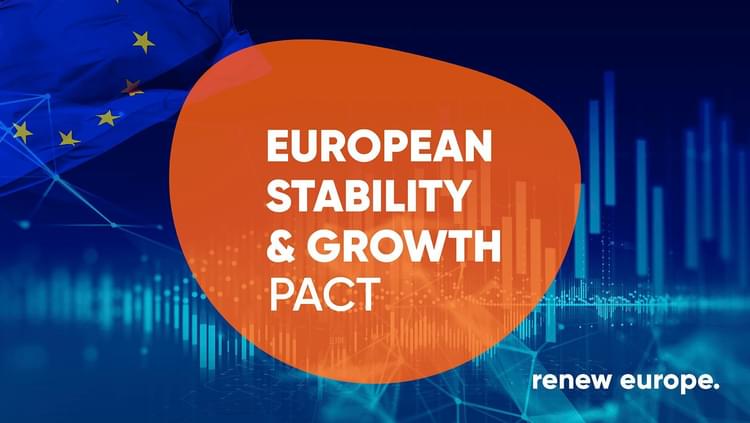Deal on Economic Governance Review: greater flexibility must come hand in hand with greater responsibility
Author: Alberto Cuena Vilches
Date:

Renew Europe welcomes today´s inter-institutional agreement reached between the European Parliament and the Council on the Economic Governance Review (EGR). The final compromise enables an updated economic governance framework following the exceptional suspension of the EU´s fiscal rules in 2020, which gave Member States greater budgetary flexibility to cope with the aftermath of the pandemic, as well as the war in Ukraine and the ongoing conflict in the Middle East.
Ahead of the reactivation of the Stability and Growth Pact in 2024, the Renew Europe negotiating team made sure that a new framework, which can be tailored to the differing needs of the Member States, can be put in place. This framework strikes an adequate balance between the need to ensure effective debt reduction and enough flexibility for promoting the strategic investments the EU needs to become a truly competitive geopolitical player in an increasingly volatile world.
MEP Billy Kelleher (Fianna Fáil, Ireland), Renew Europe shadow rapporteur on EGR, stated:
"By reaching this agreement we prevent a return to the rigid framework of the past. The last few years have been tumultuous and a burden on our economy. This framework will ensure that Member States can return to a sustainable debt level, whilst having the necessary flexibility to make investments for our future,as well as the necessary tools to address the climate-related challenges we face"
Our political group is broadly satisfied with the final compromise agreed by the co-legislators as it includes key measures that we have been advocating for months. Thus, the new framework will address the existing investment gaps in the EU by providing enough fiscal space for strategic public spending that will strengthen the EU Single Market and help to deliver the twin transitions. This will be combined with safeguards that would ensure there is effective and sustainable debt reduction without dampening growth.
Moreover, thanks to the fruitful negotiation by Renew Europe, national ownership will come together with accountability by independent fiscal institutions, and the European Fiscal Board will be provided with an adequate framework for conducting its activities.
Lastly, beyond the oversight role played by the Commission and independent national authorities, Renew Europe has succeeded in securing an improved economic governance with greater democratic scrutiny, in which the European Parliament plays a more important role.